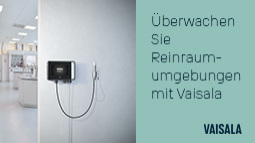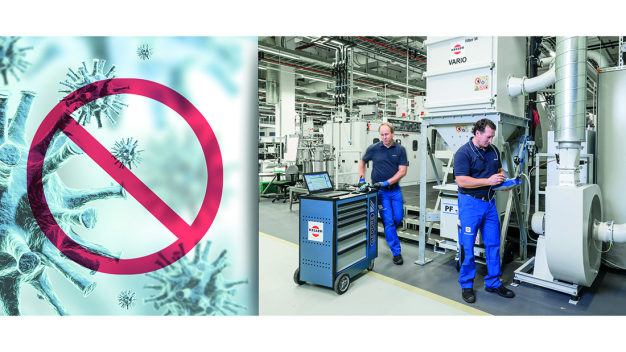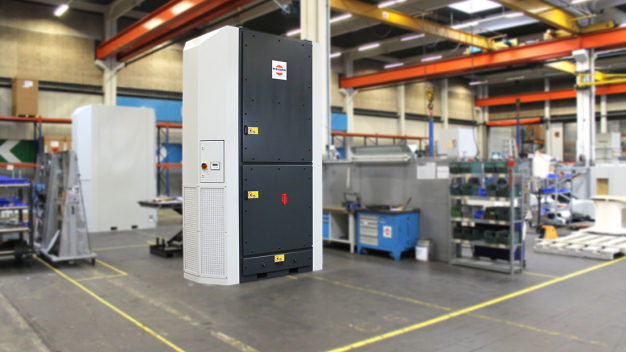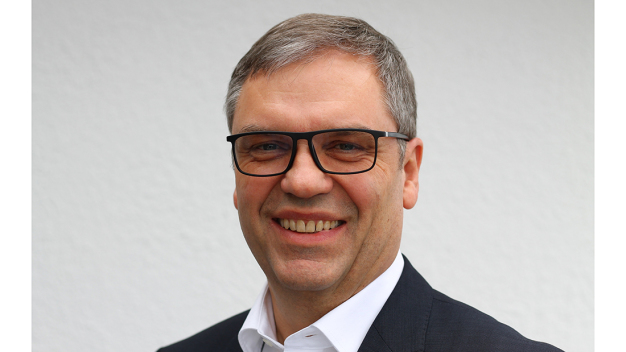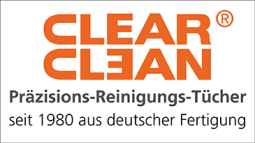Ulrich Stolz
Clean air in manufacturing plants
The Corona pandemic is a wake-up call to improve air quality inside manufacturing plants and other occupied spaces
Technological solutions are available for manufacturers to maintain their plant air relatively free of fine dust and viruses. Ulrich Stolz, Head of Technical Engineering at Keller Lufttechnik in Kirchheim unter Teck near Stuttgart, explains how this works, which systems are required, and where it is advisable to use them.
Until recently, air pollutants such as coolant and oil mist, welding fumes or dust from machining processes have been the primary focus when it came to the safe filtration of emissions in manufacturing plants. Presently, during the time of the Corona pandemic, the question arises as to whether companies should also protect their employees against viruses, especially the Corona virus Sars-CoV-2, and how to effectively implement this protection.
The Corona virus is a largely airborne hazard
It is important to know that viruses are microscopic in size. They measure only 20 to 330 nanometers (= thousandths of a micrometer, μm). According to current studies, the Corona virus is between 80 and 120 nanometers in size. The tiny viruses usually adhere to droplets (> 5 μm) or to aerosols (< 5 μm). Droplets are generated when people sneeze, cough or yell. Aerosols are already generated during normal speech. Aerosols can remain in the air for between a few seconds and several hours, depending on the surroundings. Based on current knowledge, 45 percent of people infected with Corona are infected via droplets, 45 percent via aerosols and ten percent via direct contact such as shaking hands or touching contaminated surfaces. This means that the primary means of transmission is airborne.
Efficient filtration systems stop viruses
This is positive news for manufacturers operating high-performance extraction systems, such as using KLR filter elements from Keller Lufttechnik. Equipment which filters the finest particulate from fine dust can also capture a high percentage of airborne fungi, bacteria and spores. Combined with a secondary filter level of H13 or H14 quality filters, even viruses can be reliably separated. We can combine such a secondary filter level with all types of separato rs - whether dry filters, wet scrubbers, coolant and oil mist collectors or electrostatic separators. If necessary, we can add UVC radiation or ozone as additional air disinfecting measures.
Wake-up call: Checking the indoor air quality
The questions and discussions regarding air quality during the Corona pandemic should be seen as a wake-up call to perform an air quality analysis inside plants and work spaces, and to initiate improvements. Changes in production processes often result in creeping modifications, and consequently the increasing dust load in a plant is barely noticed. Ideally, extraction systems capture the airborne pollutants released during machining processes as close as possible to the emission source, and extract them. However, such proximity cannot always be feasible in terms of process technology. Impurities can then circulate into plant air and impact the overall air quality in the work environment.
Finest particulate can be hazardous
If the fine dust load increases as a result of some manufacturing processes, it provides viruses additional opportunity to spread. Recent studies have indicated that viruses can not only spread with the aid of droplets and aerosols, but can also attach themselves to fine dust particles. Such fine dust particles are already a proven health hazard even without a virus load and can lead to various diseases of the lungs and cardiovascular system, among others. This makes it imperative to filter the finest particles from the overall work environment.
Reducing the basic load of fine dust
Companies intending to minimise employee health hazards can adopt countermeasures with an overall plant extraction system that complements the machine extraction system, and significantly reduces contamination with pollutants such as fine dust, viruses, bacteria, fungi, pollen and spores. The AmbiTower from Keller Lufttechnik is a product that has been designed for this very purpose. This separator with high performance filter plates and a secondary filter stage is available in various designs and dimensions. It supports the stratified air principle, wherein dust laden air is extracted from the overhead air space of the plant and returned as purified beneficial supply air to the work area. Consequently, a combination of direct extraction at processing machines and ambient air extraction using the AmbiTower provides optimal operating conditions. The systems can also be flexibly modified at any time so that the operator can always reliably comply with all relevant occupational exposure hazard limits.
Breathable environment
In addition to the AmbiTower, there is the AmbiWall to handle high volumes of fine dust emissions in highly polluted areas, especially in workplaces where extraction directly at the tool is impossible. The wall-shaped dust collector also protects from harmful noise, splashing and employee vision hazards - essential in welding operations, for example. Several AmbiTowers and AmbiWalls can be combined into a single unit that automatically adjusts the air flow according to the volume of fine dust. This means that each unit only extracts as much as is actually necessary.
Weighing the various benefits
The final solution adopted depends strongly on each individual case. The situation in a company where many people work closely together in a confined space must be handled differently than in a company where a few employees operate machinery in an expansive hall. It is necessary to eventually weigh all the risks, costs and benefits involved. While the costs can be quantified quite accurately, the risk/benefit assessment also depends on individual factors. Based on experience, several beneficial safeguards can frequently be combined. If the fine dust volume in plants and work areas is decreased, the following advantages can be achieved. Cleaner air prevents various diseases, especially those of the respiratory tract. Employees enjoy a more comfortable and safe work environment, supporting their overall motivation. In addition, less dust is deposited, noticeably reducing cleaning requirements. Machines and systems have a prolonged service life, and the risk of accidents is reduced.
Conclusion
Anyone contemplating improved air quality in their manufacturing plants and workshops should consider a coordinated system of exhaust air, supply air and recirculated air. We are in a position to combine collection and room extraction close to the source in such a way that even the finest particulate is separated, which is ecologically sensible, energetically optimized, compliant with laws and regulations, and customized for your individual needs.
Keller Lufttechnik GmbH + Co. KG
73230 Kirchheim unter Teck
Germany



